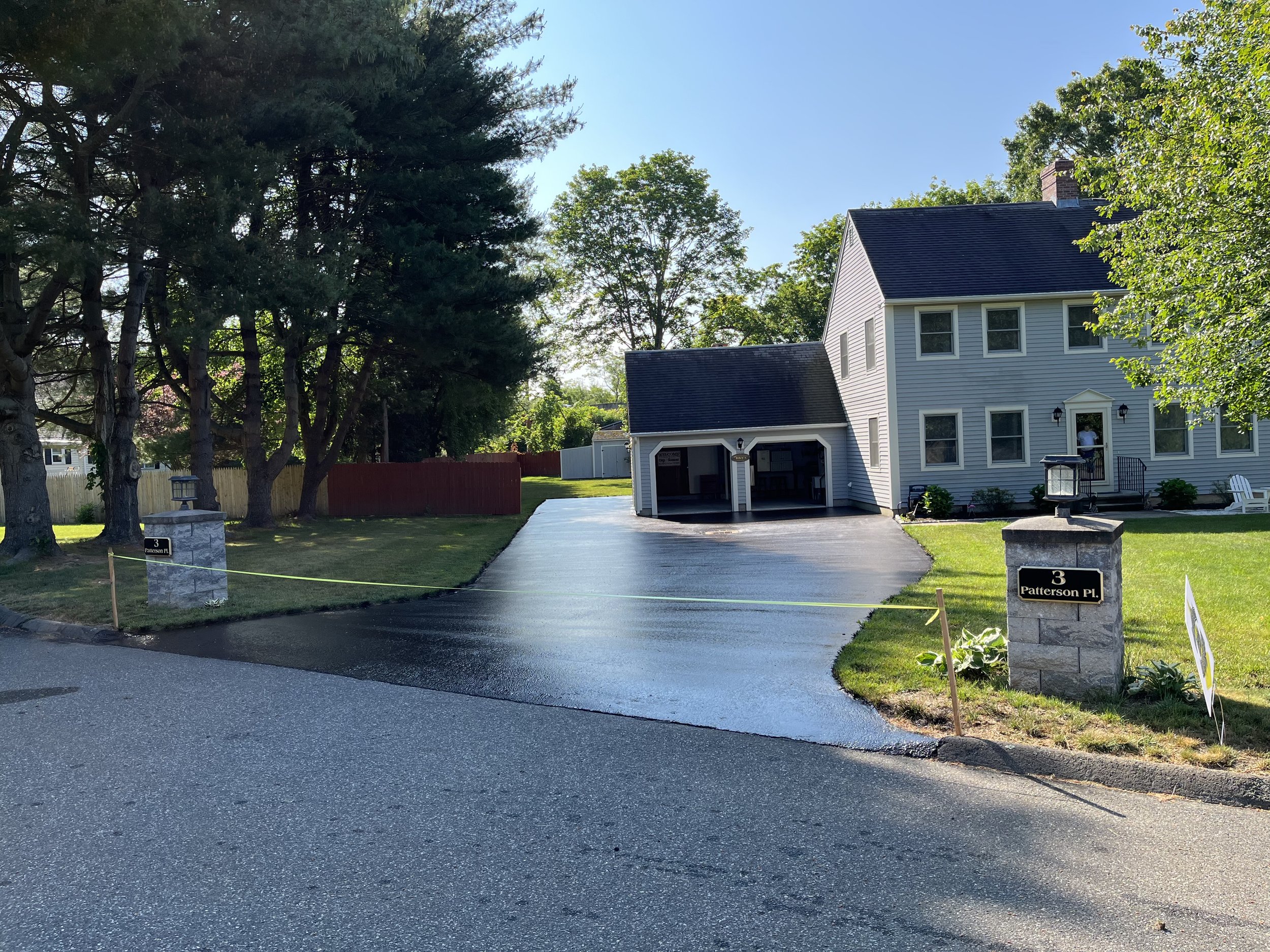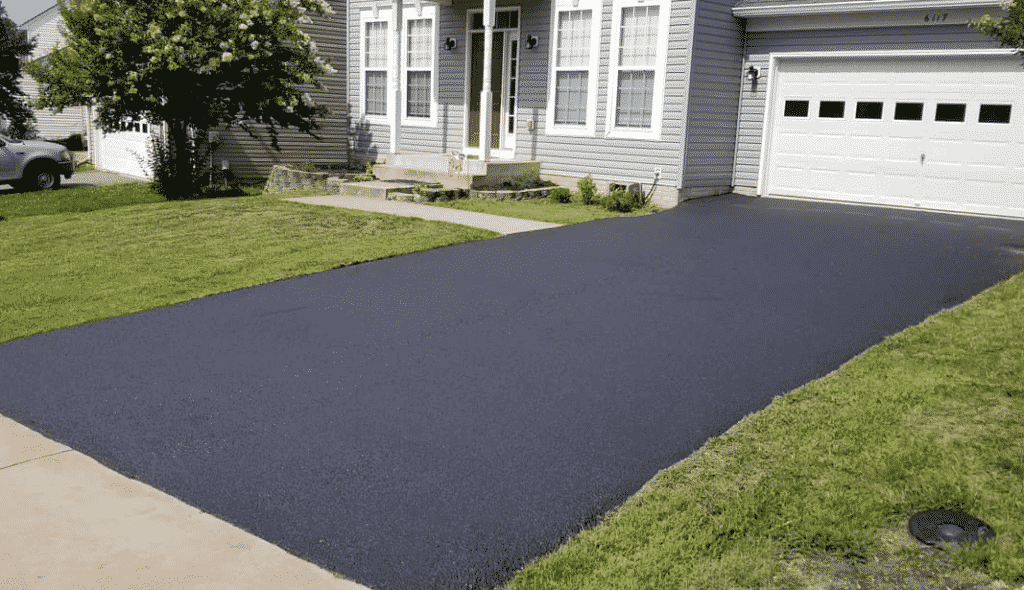Cold Mix Asphalt Vs. Hot Mix Asphalt: Which Is Right for You?

Make-up Distinctions
Cold mix and warm mix asphalts differ substantially in their composition, with unique qualities that impact their performance and applications. Cold mix asphalt is produced by emulsifying the asphalt binder with water and an emulsifying agent before blending it with aggregate. This approach allows for the asphalt to be practical at lower temperatures, making it ideal for momentary repairs and for usage in colder weather. Warm mix asphalt, on the various other hand, is made at high temperatures, usually in between 300-350 ° F, which helps to accomplish far better compaction and a more resilient end product. The warm mix asphalt manufacturing process includes heating the aggregate and asphalt binder individually before combining them at the asphalt plant.
In addition, chilly mix asphalt has a tendency to be much less dense and much more flexible than warm mix asphalt. This adaptability makes it much better matched for areas with higher levels of activity, such as driveways or roads with hefty website traffic. In contrast, warm mix asphalt is recognized for its high longevity and resistance to rutting and splitting, making it a preferred selection for freeways and high-traffic roads where long life is important.
Installation Process Variances
The process of installing chilly mix and hot mix asphalt displays noteworthy variations in their treatments and needs. In comparison, hot mix asphalt necessitates a much more fancy installation procedure. Due to the home heating requirements, hot mix asphalt installations are usually carried out by professionals with specific devices, making sure an extra structurally sound and irreversible outcome.
Durability and Longevity Factors
When thinking about asphalt options, sturdiness and longevity are critical elements to examine for long lasting pavement performance. Warm mix asphalt (HMA) is recognized for its outstanding sturdiness and durability.
In regards to durability, HMA commonly outmatches CMA due to its exceptional toughness and resistance homes. HMA sidewalks have a longer service life, needing less constant repairs and upkeep, which can convert to set you back savings in the future. In addition, HMA sidewalks are more conveniently personalized to satisfy details job requirements, better enhancing their sturdiness.
Cost Factors To Consider
Thinking about the economic implications is a critical facet when assessing the choice in between hot mix asphalt (HMA) and cool mix asphalt (CMA) for pavement jobs. While the initial price of warm mix asphalt is normally higher than that of chilly mix asphalt, HMA often offers a much more economical service over time due to its premium durability and longevity. HMA is known for its capacity to withstand heavy traffic lots and rough weather condition conditions, decreasing the requirement for frequent repair work and upkeep. On the other hand, cool mix asphalt is more budget friendly ahead of time but may need more frequent patching and resurfacing, bring about greater upkeep view website costs gradually.
In addition to product prices, it's vital to take into consideration the expenses connected with installment and upkeep when comparing HMA and CMA. HMA generally requires specific tools and read here skilled labor for appropriate installment, which can impact total project expenses. On the other hand, CMA is easier to work with and can frequently be applied using simpler methods, possibly lowering setup costs. Ultimately, the decision between HMA and CMA ought to take into account not simply the initial expense but likewise the lasting financial implications to establish the most affordable alternative for the details pavement task.
Environmental Effect Contrast
Contrast of the ecological impacts between hot mix asphalt (HMA) and cold mix asphalt (CMA) discloses distinct distinctions in sustainability practices. HMA production requires high temperature levels, leading to boosted energy usage and greenhouse gas discharges.
Furthermore, the use of CMA usually involves reusing existing asphalt sidewalk, advertising source preservation and minimizing the amount of waste sent out to garbage dumps. By deciding for CMA over HMA, roadway building and construction jobs can add favorably to environmental conservation initiatives.
Final Thought
In final thought, the choice in between chilly mix asphalt (CMA) and warm mix asphalt (HMA) relies on various elements such as make-up, installment procedure, sturdiness, long life, expense, and environmental influence. asphalt repair. While CMA offers a cost-efficient and fast option for minor repairs, HMA makes certain premium durability and longevity for heavy traffic areas. Think about these aspects very carefully to identify which sort of asphalt is the ideal selection for your paving needs

Thinking about the economic implications is a vital element when examining the choice in between hot mix asphalt (HMA) and chilly mix asphalt (CMA) for pavement projects. While the first cost of warm mix asphalt is generally higher than that of cold mix asphalt, HMA commonly provides an extra cost-effective option in the long run due to its premium resilience and durability. asphalt repair.Contrast of the environmental impacts between warm mix asphalt (HMA) and cool mix asphalt (CMA) discloses distinctive differences in sustainability practices.In conclusion, the choice between cold mix asphalt (CMA) and hot mix asphalt (HMA) depends on different aspects such as structure, installment procedure, durability, long life, price, and ecological influence